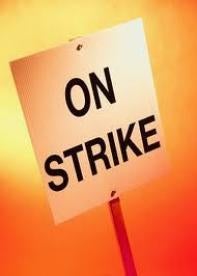On February 16, 2017, tens of thousands of individuals across the country stayed home from work as part of the “Day Without Immigrants,” a social activism campaign organized in response to President Donald Trump’s recent executive orders concerning immigration and increased enforcement, deportation actions, and raids by Immigration and Customs Enforcement. The “Day Without Immigrants” action was apparently not coordinated by any centralized organization, but was promoted on social media and by word-of-mouth just days before.
Now, the same groups that organized the January 21, 2017 Women’s March on Washington – an action participated in by millions of individuals across the county – has called for a “Day Without Women” to be held on Wednesday, March 8, 2017. Organizers are encouraging women to participate by taking the day off from paid and unpaid labor, and by wearing red – which the organizers note “may be a great act of defiance for some uniformed workers.”
Employers should be prepared to address any difficult questions that might arise in connection with the upcoming “Day Without Women” strike: Do I have to give my employees time off to participate in Day Without events? Can I still enforce the company dress code – or do I need to permit employees to wear red? Can I discipline an employee who is “no call, no show” to work that day? Am I required to approve requests for the day off by employees who want to participate? As we explained in our prior blog post, guidance from the National Labor Relations Board’s General Counsel suggests that an employer can rely on its “lawful and neutrally-applied work rules” to make decisions about granting requests for time off, enforcing its dress code, and disciplining employees for attendance rule violations. An employer’s response, however, to a given employee’s request for time off or for an exception to the dress code, may vary widely based upon the individual facts and circumstances of each case.
As we previously noted, participation in events such as these may be protected concerted activity under the National Labor Relations Act (the “Act”). When employees take action to “improve their lot as employees through channels outside the immediate employee-employer relationship,” that activity is protected concerted activity under Section 7 of the Act so long as it has a direct connection to the employees’ working conditions. GC Memorandum 08-10 (2008), pgs. 1, 10 (citing Eastex, Inc. v. NLRB, 437 U.S. 556, 565 (1978)). There are, of course, some limitations on employees’ right to engage in concerted political activity. In GC Memo 08-10, issued in 2008, the Board’s General Counsel concluded that under existing Supreme Court and Board precedent, when employees exert economic pressure on their employer by leaving work to support a political cause, that activity may not be protected if the employer has “no control over the outcome of that dispute.” GC Memo 08-10, pg. 10.
However, even if employees’ participation in these mass demonstrations and strikes is considered protected concerted activity (as it concerns a specific issue directly connected to their work conditions and terms), an employer may still regulate that activity through its “lawful and neutrally-applied work rules.” GC Memo 08-10, pg. 13.
Similarly, an employer can rely on its lawful, uniformly-applied policies to evaluate whether to grant a request for time off to participate in Day Without Women activities – by asking, for example, whether the employee has sufficient accrued time, or has given enough advance notice, or has found someone to cover his work shift if that is ordinarily required. An employer may also apply its neutral attendance policy (which complies with all applicable leave laws, including local paid sick leave laws) to discipline an employee who simply fails to report to work without calling out.
What Employers Should Do Now
All employers should be prepared to address these issues as they arise – if not this week, then in the coming weeks and months if these types of mass protests continue. As described above, an employer’s reaction to its employees’ expressed desire to participate in these events will vary widely based on the individual circumstances at issue.




 i
i

